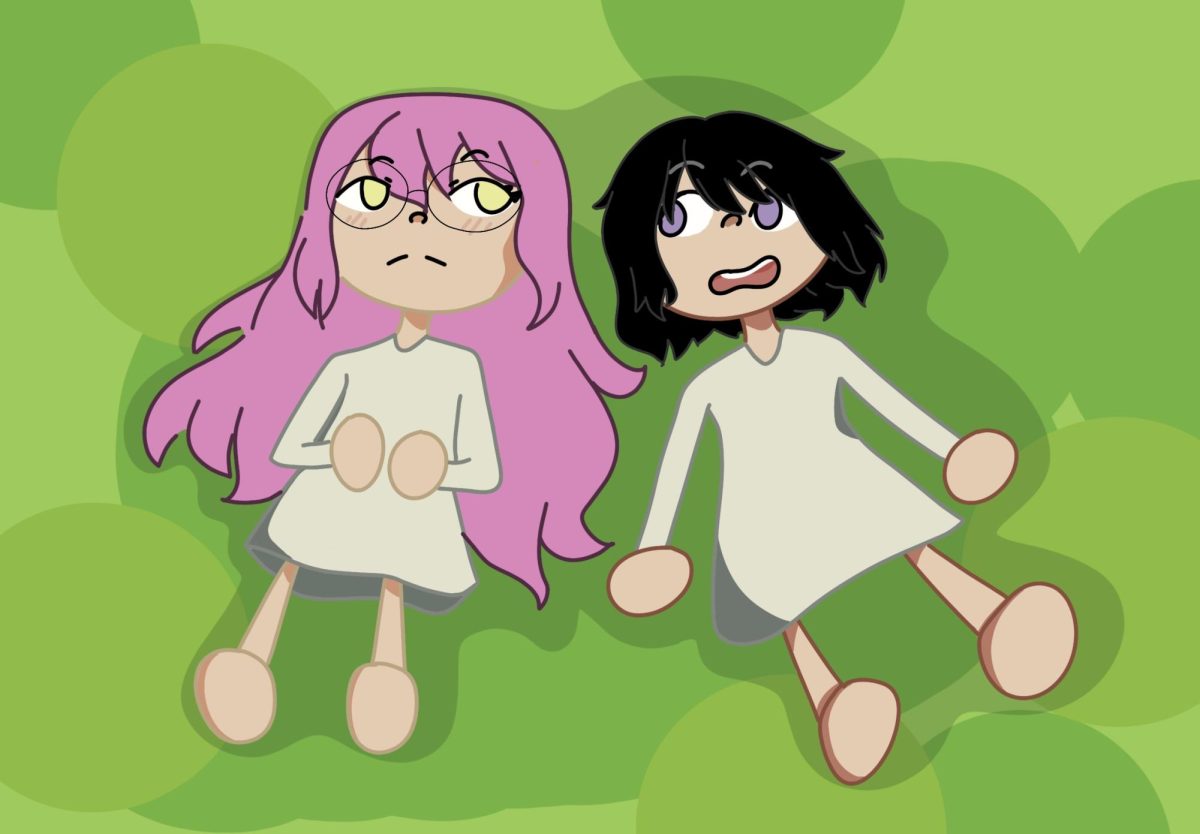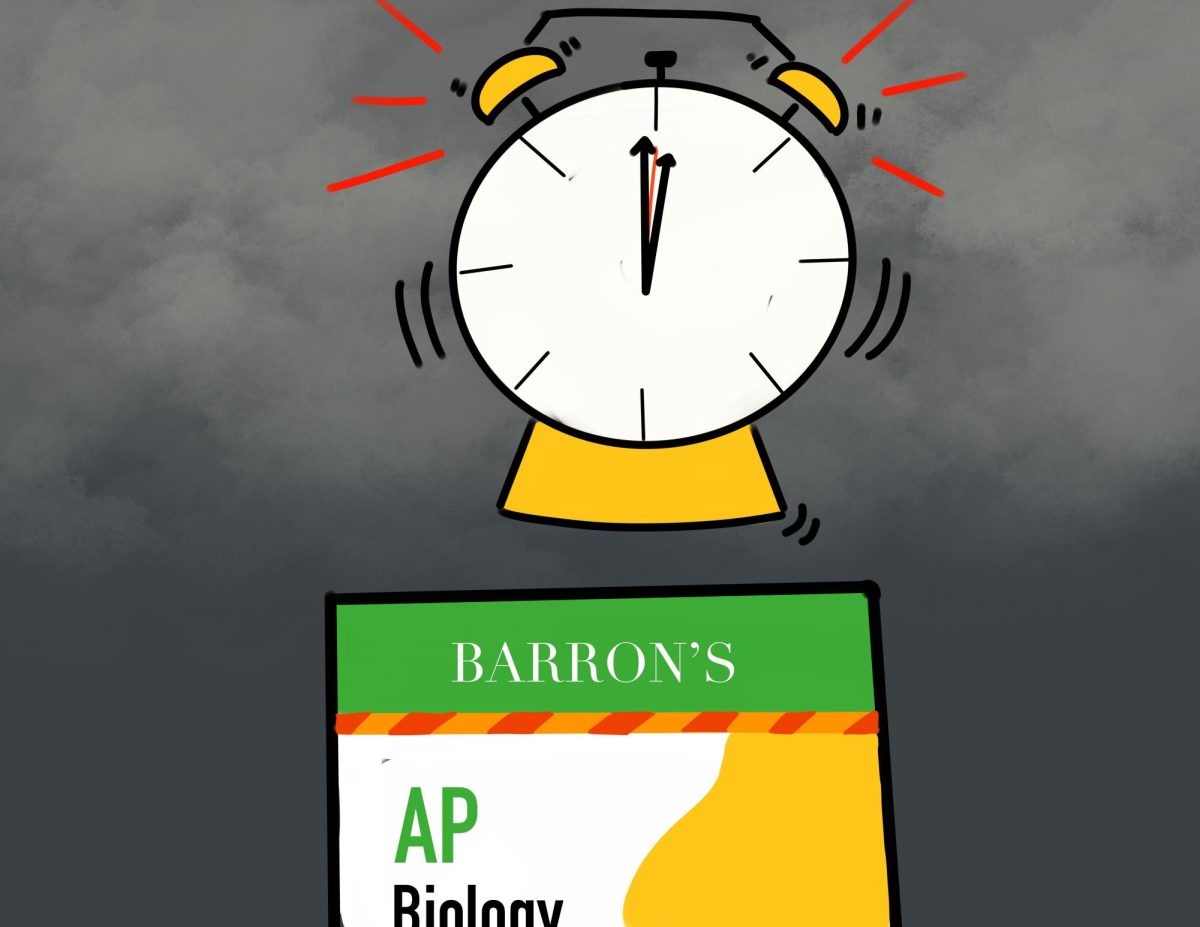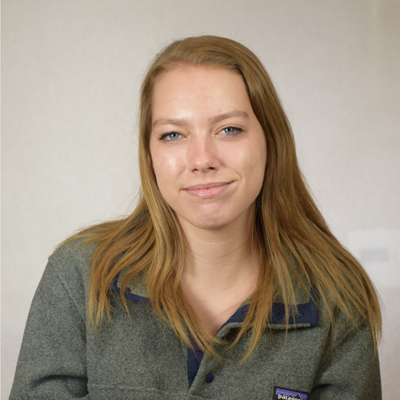If you’re a high school student, chances are you experience holiday parties in which, after several hours of strategic evasion, you are inevitably cornered by that vaguely familiar relative and interrogated about your plans for the future.
To be fair, you doomed yourself when you made the accidental eye contact from your haven by the chip bowl. Your relative sees the opportunity, as you have been hiding in the laundry room with the cat for most of the party, and she takes it.
As she advances steadily toward you, her intent becomes clear, and you scan the room for a conversation to squeeze into or a Christmas tree to duck behind. But, speaking from personal holiday party experience, over by the tree lurks that cousin who drunkenly claimed 10 minutes ago that women’s bodies are made for basket weaving. Do you really want to talk to him? No.
One second too many is spent disdainfully scrutinizing your misogynist cousin’s greasy hair, and the dreaded conversational relative is upon you. Your parents are watching, and there is nowhere to run. What are your interests in school, she wants to know. You aren’t sure how to reveal that you can’t think of a single class you’re actually interested in without sounding like the lazy, apathetic teen that maybe you are.
“Uh…English, I guess?” You’re asking yourself more than telling him, but she is none the wiser, nodding sagely as if she too were captivated by the essence of the English language in her youth. Now confident that you know what you’re doing, she ventures further into the topic, sounding more excited about your future than you are. “Have you been looking at colleges?”
I know many students who would welcome this conversation, eager to talk about their painstakingly calculated career plans, but not me. I have always felt uncomfortable by the topic, unsure of whether to profess ambitions that I don’t really have or to subject myself to the “don’t be a drag, you’ve been given so many tools for success” response to my honesty.
“Maybe she has just forgotten that I’m only a sophomore,” I try to convince myself. After all, she did offer me a glass of champagne. Still, a nagging feeling of guilt hangs over my shoulders. Maybe I really am behind. If so, I need to figure it out soon.
I often feel that, as a Campolindo student who hasn’t chosen a particular direction, I am in the minority. Most students with whom I’ve discussed the topic seem to have an answer to the “what do I want to do with my life?” question, readily stating that they want to be a pediatrician, a lawyer, or a sports psychologist.
As sophomores, my peers and I will create career projects, essays and speeches on our ideal occupations, in our English classes. While several juniors have told me how fun this project was for them, and many of my sophomore friends say that they anticipate it, I dread having to research and report upon a career in which I have no actual interest.
My true problem isn’t that I hate everything school-related, although my detachment from most, if not every, class I take certainly doesn’t help. The issue is that none of the professions I think I might enjoy seem to be realistic options for someone in my position, someone who doesn’t have a 4.0 GPA but attends a school where a promising path to success is obligatory from the first day of freshman year.
“You’re writing your own ticket; you should have some affinity to what you’re choosing,” my aunt told me when I finally caved after hours of her compounding upon my supposed desire to become a writer, admitting that even if I possessed the skill, I probably wouldn’t want to. But is the enjoyability factor of a job really a quality that modern students have the liberty to seek?
I remember telling my mom offhandedly when I was younger that I wished I could refrain from attending the college that she wanted me to in order to become a hair stylist. She was distraught at the suggestion, innocent as it was at the time, saying that I didn’t really want to be a hair stylist and I could do much better than that.
I had confided in her playfully, already understanding that I was expected to apply myself to a more “respectable” profession. Nevertheless, I remember being confused as to why she couldn’t simply humor the childish whim. If I would enjoy doing it, would it really be so bad of a future?
I assumed that as I became older I would somehow be enlightened of my calling in life, but it seems as if the options are only becoming slimmer. Not only am I expected to find a subject in which I have some level of competence, I must work harder than ever to ensure success for myself during and after college. And then what of happiness? It’s hard to believe that I could honestly succeed in any career without an emotional connection, but I fear that I might have to try.
I see my own problem reflected in my sister. She, who has always received better grades than me, could easily study a multitude of different subjects in a college of her choosing. But she tells me that she too is conflicted over whether to pursue the esteemed academic career that our parents want for her or take the path that would bring her the most enjoyment in life.
While I place much of the blame for my predicament on my own shoulders, I can’t help but think that the educational system plays a role. As often as we students are told that we will find our way in life if we “follow our passions” and “do what we love,” I’m sure that many of my peers would laugh at the idea that this approach to schooling is truly in practice at Campolindo.
While our school may encourage freedom of self, I don’t feel as though most students are able to adequately explore “who they are” in preparation for college. Some students have found personal skills and passions that they want to continue in an occupational sense through electives or extracurriculars at school, and that’s great for them, but I don’t believe that the concept is valued enough by the majority.
Maybe personal discovery is lacking because it’s not a priority. It seems that we are all up to our necks just trying to get through the required courses, and don’t have space to relax and consider the process. Even electives and extracurriculars that we take are often chosen not out of actual interest but in an effort to advance one’s appeal to colleges.
So if I’m not enrolled in classes I’m particularly partial to in high school, when am I supposed to figure out what my options are? After I’m already in college? While I suppose this is technically plausible, I doubt my parents are investing money in my college fund just for me to fumble around and continuously change my mind once I get there. In their eyes, there isn’t much room to make mistakes.
Though I am certainly under less pressure from my parents, my school, and myself than most upperclassmen are, I can’t help but worry that I won’t have my decisions made with certainty within the next 2 years. As a naturally indecisive person, I don’t want to jump into the deep end without being entirely confident in the commitment.
So if I am not, by some miracle, soon enlightened of an innate talent or passion I happen to possess, perhaps college and the next few years preceding it will be less of a restricting finality than they seem to be, and a little floundering will be permitted.


